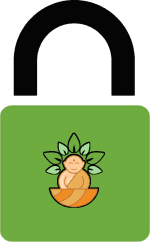How To Find True Love – Lesson 1.2 – Childhood Reverberations
(Lao Tzu)
Welcome to Lesson #2 of the How To Find True Love course!
The chemicals in your brain, which you learned about in the first lesson, aren’t the only aspect of attraction.
How you grew up, your relationship with your family, and the beliefs you formed about relationships, are all major factors in who you’re attracted to, so let’s look at some of those influences.
Childhood Influences Of Attraction
Consider these influences from your family:
- Did you feel wanted or unwanted?
- If you felt wanted in your family, you approach the world with the attitude that people want to be with you. You have a sense of openness which attracts people to you.
- If you felt unwanted in your family, you yearn to be loved and wanted by a special somebody. Sometimes this yearning leads you to choose anybody who comes along, whether or not they’re healthy for you.
- There are also those who are so afraid of being rejected that they stay isolated and alone to avoid being hurt. They won’t take the risks needed to form a relationship, so the television or Internet become their companion.
- What is your concept of a relationship? You learn from your family, mostly by their actions, how to have relationships.
- If you came from a family where communication patterns were positive, affection was freely expressed, and people treated each other with respect, you’ll look for those same qualities in your special someone.
- If you grew up in a home with conflict, you may not have been exposed to or learned healthy ways of relating.
- Learn now by seeking out couples with healthy relationships. Read books, get coaching, attend workshops. Then practise those skills so what you learned is ingrained within you.
- The familiar feels comfortable. Think of the family you grew up in as a box. You’re familiar with everything in that box. If your box has soft cushy toys, that’s what you know. When you leave the box, leave home, you’ll be attracted to soft cushy toys.
- The same is true for people. When you leave home, you’ll be subconsciously attracted to people who feel familiar.
- The difficulty comes when you grew up with people who criticized and berated you. Even though that behaviour hurts, it’s familiar to you. In a strange sort of way, it’s “comfortable” because that’s what you’re used to.
- Healthy relationships will seem strange to you if you grew up in an unhealthy family. Later in this course, you’ll learn how to identify the familiar that you don’t want.
- Family beliefs. Just as families have patterns of behaviour, they have beliefs which result in those patterns.
- For example, if the family pattern is to stay isolated and not interact with others, the belief may be that outsiders are dangerous. An element of mistrust is built into meeting new people with the belief that outsiders are dangerous.
- You also absorb beliefs about family roles. Typical roles are who is the breadwinner, who does the housework, who does the yardwork, whose job is more important. Many of these roles are gender-related.
- There are also beliefs about communication, anger, money and child rearing.
- It’s important to identify your specific beliefs about all facets of relationships. If you discover you hold a belief not supportive of the type of relationship you want, decide what belief you do want. Then, consciously begin acting out that belief.
Relationship Choices And Rebellion

Sorry - The Rest Of This Article Is Only For Self Help Nirvana Members
JOIN NOW FOR ONLY $7Self Help Nirvana is an online community for everybody whose goal is personal improvement and development. Become a Self Help Nirvana member today and get access to everything here at SelfHelpNirvana.com!
Already a member? Sign in.
 |
 |






